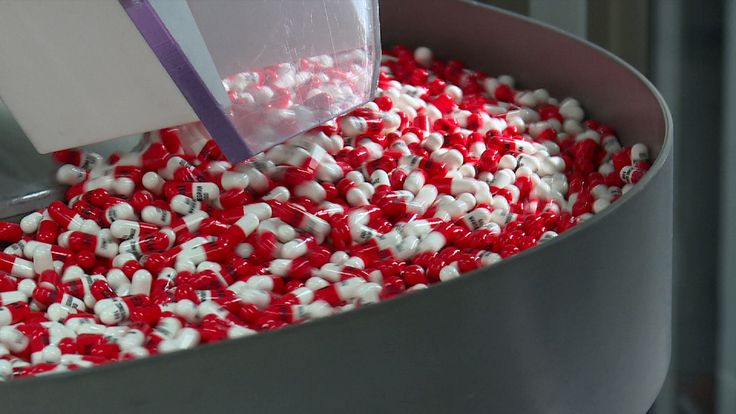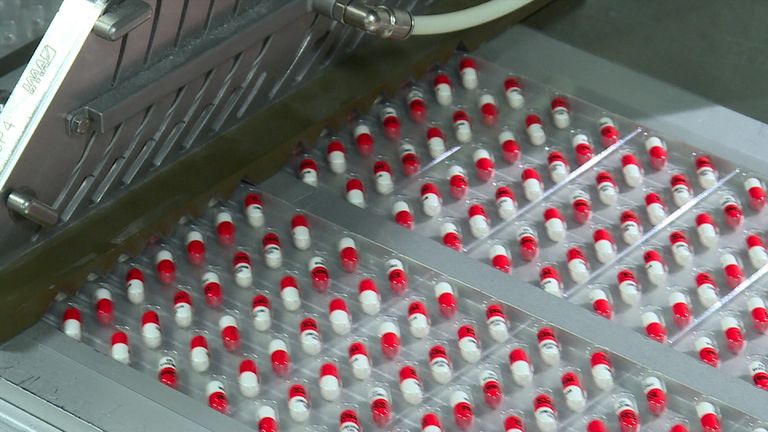Brexit Forensics: Could patients face medicine shortages post-Brexit?

Wednesday 18 April 2018 15:49, UK
Paul Kelso, Health Correspondent
British patients could face drugs shortages and long delays for new medicines as a result of the European Medicines Agency being forced to leave the UK after Brexit, the pharmaceuticals industry has warned.
Drugs companies have told Sky News that the EMA's departure will damage the UK's position as a centre of drugs innovation and in turn mean patients have to wait for new treatments that currently reach the British market first.
The EMA, which licences medicines for 500 million Europeans and oversees an industry worth £200bn, has been based in London for more than 20 years, but will leave its Canary Wharf headquarters after March 2019.
The agency is seen as a prestigious and valuable asset by other European nations and there is between cities from 19 of the EU's 27 remaining nations.
::
Senior pharmaceutical industry figures are calling on the Government to negotiate an agreement that disrupts research and development and trade as little as possible.
David Jefferys, a senior vice-president at Japanese company Eisai and a spokesman for the Association of British Pharmaceutical Industry, told Sky News: "From Brexit the risk is that there may be supply shortages unless we carefully manage the transition period.
"Then on the other side we want to see the UK arrangements sufficiently developed so that we don't find the UK is in the second or third wave of submissions (for new medicines).
"We want the UK up there participating as fully as it can so medicines are available to patients in the UK at the same time as they are for those in Europe."
::
Currently drugs manufactured in the UK can be supplied to all 28 EU member states under a single licence.
But an initial position paper from the EU said all drugs manufactured in the UK after Brexit would be considered imports from a "third country", meaning companies would need to establish EU-based entities if they wanted the benefit of EMA regulation.
The Government has attempted to ease anxiety in an industry worth £60bn a year to the UK economy, saying it wants to continue to receive access to the most innovative medicines regulated by the EMA.
But ministers did not set out how that could be achieved post-Brexit.
Drugs are currently assessed scientifically by the EMA before the European Commission approves their use across member states.
::
The industry has proposed one solution that would see the UK national agency, the Medicines and Healthcare Products Regulatory Agency, work alongside the EMA on the first part of the process before clearing drugs for use here.
The contest to host the EMA resembles an Olympic bidding race, with glitzy promotional videos and a range of sweeteners being offered to win the votes of EU ministers.
Dublin is among the bidding cities, and has offered £70m in incentives to win, including offering to pay the rent on new facilities, and relocation costs for staff.
Irish health minister Simon Harris told Sky News the city's proximity to London meant it could offer a "seamless transition".
He said: "The economic benefits to Dublin and Ireland would be absolutely massive.
"Having the EMA located in your country very much brings a focus on medicines and the production of medicines to the host country so there are many spin-off benefits."
A final decision on the EMA's location will be made in November - with Amsterdam, Barcelona, Copenhagen, Milan and Stockholm also considered among the favourites.






